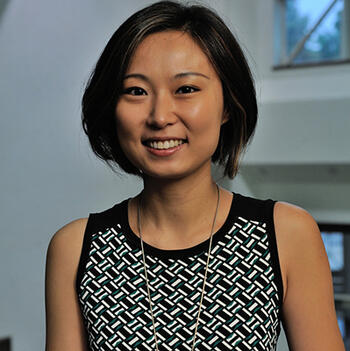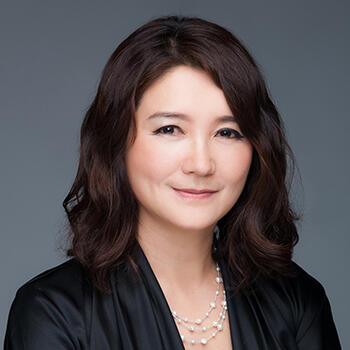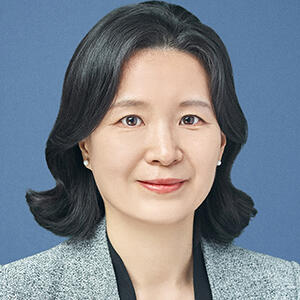North Korea, K-pop, and the Korea Program at Stanford
The Korea Program at Stanford will mark its 20-year anniversary with a conference focused on North Korean issues and South Korea’s pop culture wave (Hallyu), two aspects of Korea that continue to intrigue the public, exploring how to translate this public attention into an increased academic interest in Korea.
This event is made possible by generous support from the Korea Foundation and other friends of the Korea Program.

Featuring a keynote address by
Ban Ki-moon, former Secretary-General of the United Nations
DAY 1: Thursday, May 19, 9:00 a.m. - 5:15 p.m.
9:00-9:15 a.m.
Opening and Welcome Remarks
Gi-Wook Shin, Director of Asia-Pacific Research Center and Korea Program, Stanford
Michael McFaul, Director of the Freeman Spogli Institute for International Studies, Stanford
Gabriella Safran, Senior Associate Dean of Humanities and Arts, Stanford
9:15-10:45 a.m.
Panel on North Korea
Moderated by Yumi Moon, Associate Professor of History, Stanford
Siegfried Hecker, Professor Emeritus, Management Science and Engineering; Senior Fellow Emeritus, FSI, Stanford
Kim Sook, former ROK Ambassador to UN; Executive Director, Ban Ki-moon Foundation for a Better Future
Joohee Cho, Seoul Bureau Chief, ABC News
11:00-11:50 a.m.
Korea Program at Stanford: Past, Present, and Future
Moderated by Kelsi Caywood, Research Associate, Korea Program, APARC, Stanford
Paul Chang, Associate Professor of Sociology, Harvard University
Joon-woo Park, former ROK Ambassador to EU and Singapore; 2011-12 Koret Fellow
Jong Chun Woo, former president of Stanford APARC-Seoul Forum; Professor Emeritus, Seoul National University
Megan Faircloth, Senior in East Asian Languages and Cultures, Stanford
11:50 a.m.-12:30 p.m. Lunch Break
Keynote Address by Ban Ki-moon, former Secretary-General of the United Nations

Introduction by H.R. McMaster, former National Security Advisor; Fouad and Michelle Ajami Senior Fellow, Hoover Institution, Stanford
Moderated by Gi-Wook Shin, Director of APARC and Korea Program, Stanford
2:00-3:30 p.m.
Panel on the Korean Wave
Moderated by Dafna Zur, Associate Professor of East Asian Languages and Cultures; Director of Center for East Asian Studies, Stanford
SUHO, Leader of EXO
Angela Killoren, CEO of CJ ENM America, Inc.
Marci Kwon, Assistant Professor of Art and Art History, Stanford
3:45-5:15 p.m.
Documentaries on K-pop and North Korean Human Rights (teaser)*
Moderated by Haley Gordon, Research Associate, Korea Program, APARC, Stanford
Introduction of the films by Director Hark Joon Lee and Director of Photography Byeon Jaegil
Vivian Zhu, Junior in International Relations and East Asian Studies, Stanford
Youlim Kim, Third-year PhD student in Microbiology & Immunology, Stanford
*The documentaries will not be shown on the livestream

Day 2: Friday, May 20, 9:00 a.m. - 12:00 p.m.
9:00-10:30 a.m.
How to Translate Interest in North Korea and K-pop into Korean Studies
Moderated by Gi-Wook Shin, Director of Asia-Pacific Research Center and Korea Program
David Kang, Professor of International Relations and Business, USC
Yumi Moon, Associate Professor of History, Stanford
Michelle Cho, Assistant Professor of East Asian Studies, University of Toronto
Dafna Zur, Associate Professor of East Asian Languages and Cultures; Director of Center for East Asian Studies, Stanford
10:45 a.m.-12:00 p.m.
Future Visions of K-pop

Introduction by Gi-Wook Shin, Director of Asia-Pacific Research Center and Korea Program
Conversation with:
Dafna Zur, Associate Professor of East Asian Languages and Cultures; Director of Center for East Asian Studies, Stanford
SUHO, Leader of EXO



















